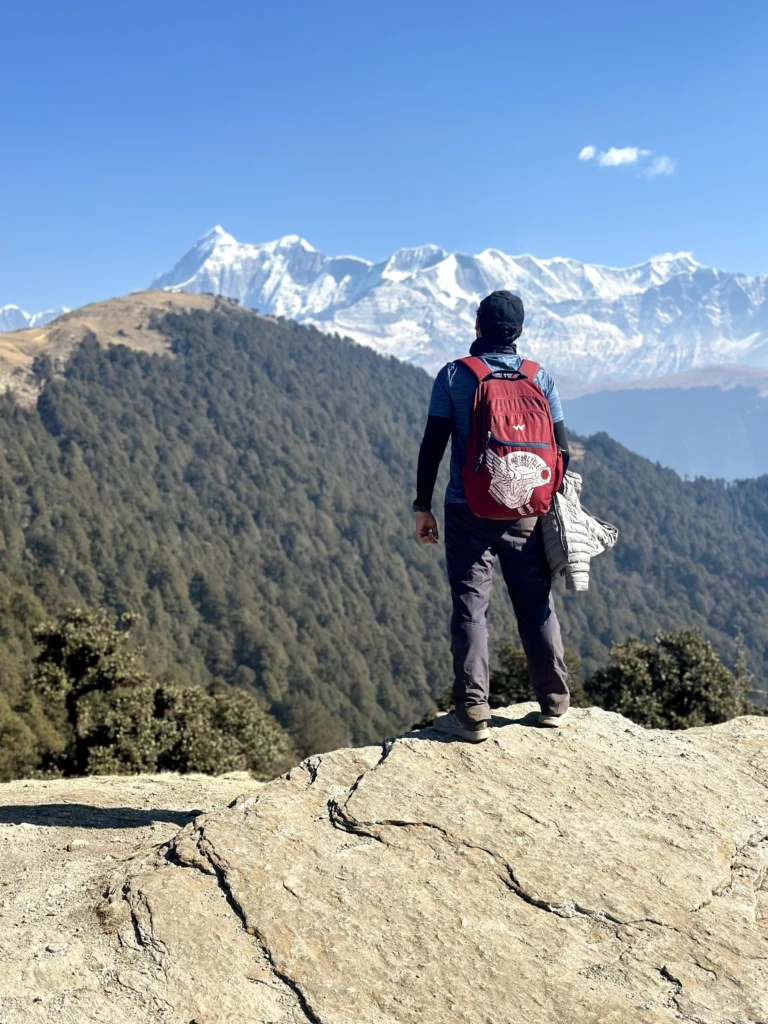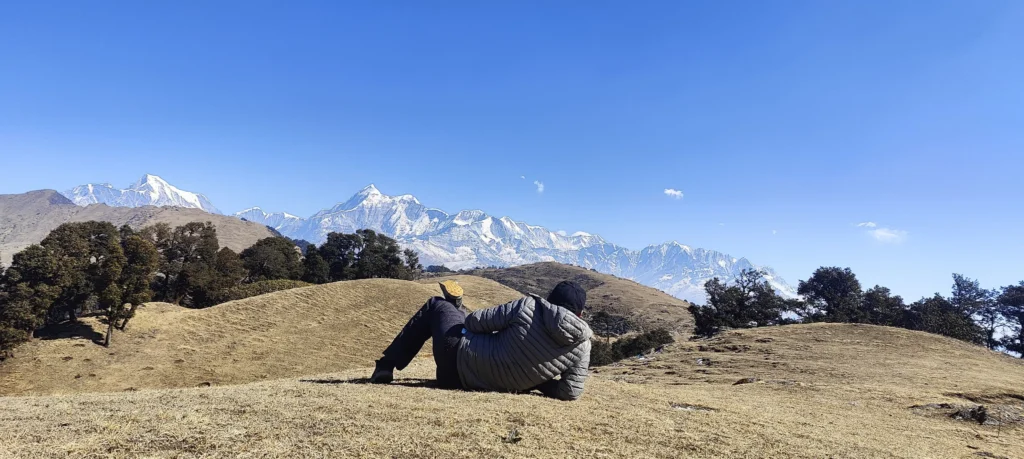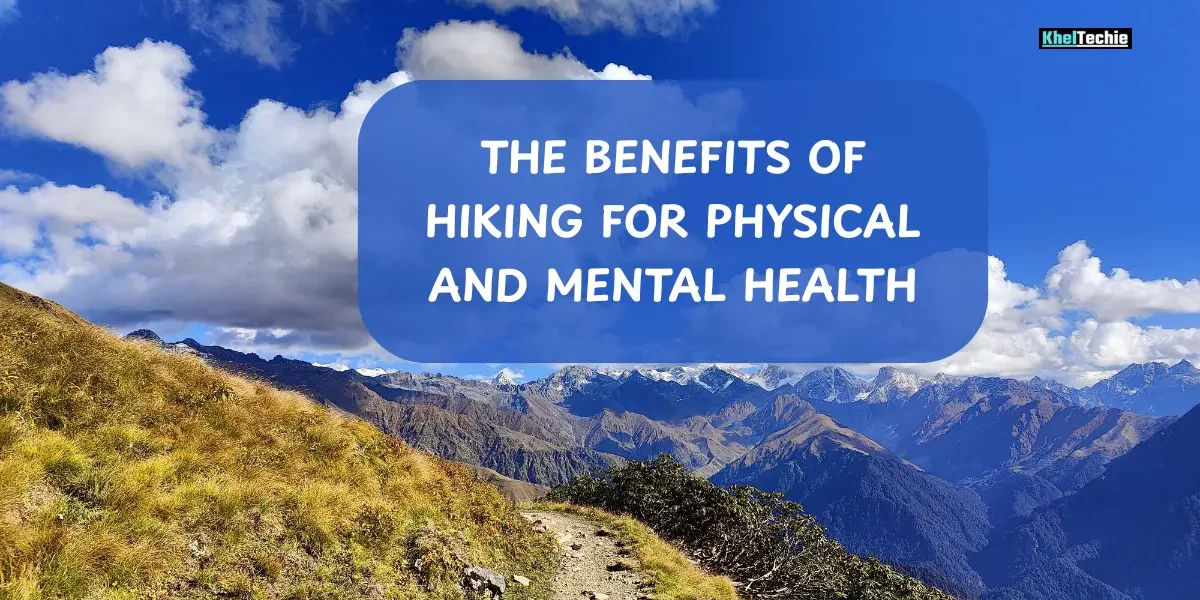The Benefits of Hiking for Physical and Mental Health: Why Nature Is Your Best Workout Partner
Tired, Stressed, or Overwhelmed? It Might Be Time to Hit the Trail
If you’ve been feeling burned out, anxious, or just plain stuck in the daily grind, there’s a natural remedy that doesn’t require a prescription: hiking .
Do you ever feel like your daily routine is a never-ending loop of work, stress, and screen time? You’re not alone. In today’s fast-paced world, many people struggle to stay active and mentally balanced. That’s where hiking comes in, not just as a weekend getaway but as a powerful tool for improving both physical fitness and mental well-being.
In this article, we’ll explore the benefits of hiking for physical and mental health, backed by science, personal stories, and expert insights. Whether you’re a beginner or an experienced hiker, this guide will give you all the tools you need to make hiking part of your lifestyle, and thrive because of it.
Also read – How to Start a Running Routine

What Are the Benefits of Hiking for Your Body and Mind?
Think of hiking as nature’s gym, no machines, no crowded locker rooms, just fresh air and movement that feels good. Whether you’re strolling through a forest path or climbing a hillside, every step is doing something powerful.
Physical Benefits
- Cardiovascular Health & Endurance: Walking uphill gets your heart pumping and improves circulation. Over time, this strengthens your heart and lungs.
- Stronger Muscles and Bones: Uneven terrain engages your legs, core, and glutes more than flat surfaces. Plus, the resistance helps build bone density.
- Improved Balance and Coordination: Navigating rocks, roots, and slopes naturally sharpens your balance and motor skills.
Mental Benefits
- Stress and Anxiety Reduction: Being outdoors lowers cortisol levels (the stress hormone) and calms the nervous system.
- Mood Enhancement & Cognitive Clarity: Nature walks boost endorphins and serotonin, which help fight depression and improve focus.
- Nature Therapy and Mindfulness: The rhythm of walking combined with natural surroundings encourages presence and reflection, like a moving meditation.
When you hike, you’re not just exercising your body, you’re giving your brain a break from screens, deadlines, and noise. That mind-body connection makes hiking uniquely healing.
Why the Benefits of Hiking for Physical and Mental Health Matter
You might wonder why hiking stands out among other forms of exercise. Let’s look at some facts and figures that highlight its importance:
- A Stanford University study found that people who walked for 90 minutes in nature showed significantly lower activity in the part of the brain linked to depression.
- The Cleveland Clinic reports that walking in nature lowers blood pressure, improves sleep, and eases symptoms of anxiety and depression.
- According to the National Park Service , spending time outdoors reduces stress, calms anxiety, and can even lead to a lower risk of depression.
And here’s a surprising fact: some doctors are now prescribing time in nature as part of treatment plans for patients dealing with burnout, anxiety, or mild depression.
Hiking isn’t just a hobby, it’s a scientifically supported path to better health.

Step-by-Step Guide: How to Get Started and Maximize the Benefits
Whether you’re new to hiking or looking to level up, here’s a clear roadmap to help you reap maximum benefits safely and enjoyably.
Step 1: Choose the Right Trail
Start small. Look for local trails rated as “easy” or “beginner-friendly.” Apps like AllTrails or Google Maps can help you find nearby options based on difficulty and elevation.
Use the “Rule of 3s” – pick a trail that’s within 3 miles, 30 minutes from home, and has 3-star ratings or higher.
Step 2: Gear Up Smartly
You don’t need expensive gear to start hiking. Here’s what every beginner should have:
- Sturdy hiking shoes
- Water bottle or hydration pack
- Lightweight backpack
- Snacks (trail mix, energy bars)
- First aid kit
- Sunscreen and hat
- Weather-appropriate clothing
Avoid cotton, it traps sweat and slows down recovery.
Step 3: Warm-Up and Cool Down
Just like any workout, warming up helps prevent injury. Spend 5–10 minutes doing dynamic stretches before you hit the trail.
Afterward, cool down with light stretching, especially focusing on calves, hamstrings, and shoulders.
Step 4: Walk Mindfully
Don’t rush. Hiking isn’t about speed, it’s about immersion. Take breaks to breathe deeply, observe your surroundings, and reflect. This enhances the mental health benefits significantly.
Step 5: Track Your Progress
Use a fitness tracker or app to monitor steps, elevation gain, calories burned, and heart rate. Tracking progress keeps motivation high and shows how far you’ve come.
Also read – How to Improve Mental Health with Fitness
Common Mistakes to Avoid When Hiking for Health
Even seasoned hikers sometimes fall into bad habits. Here are the most common mistakes beginners make, and how to avoid them.
| Mistake | Why It’s Harmful | How to Fix It |
|---|---|---|
| Over-estimating fitness | Leads to fatigue, injuries | Start with shorter, easier trails |
| Forgetting water | Dehydration affects performance and mood | Carry at least 2 liters per person |
| Ignoring weather changes | Sudden storms or heatwaves can be dangerous | Check forecasts and carry layers |
| Skipping meals/snacks | Low blood sugar = low energy | Pack high-protein snacks like nuts or beef jerky |
| Not telling anyone your route | Safety risk in case of emergencies | Share your location with someone |
Avoiding these pitfalls ensures that each hike is safe, enjoyable, and beneficial.
Scientific Backing: What the Research Says
Here’s a quick summary of studies supporting the benefits of hiking:
| Study | Key Finding | Source |
|---|---|---|
| Harvard T.H. Chan School of Public Health | Spending time outdoors in green spaces has been linked with myriad physical and mental health benefits, including lower mortality, | 2024 |
| ScienceDirect | Nature exposure improves cognitive function and emotional regulation | 2024 |
| American Psychological Association | Green spaces lower symptoms of depression and anxiety | updated on 2025 |
This growing body of evidence reinforces that hiking is more than recreation—it’s medicine.

Final Thoughts: Embrace the Trail, Transform Your Life
Hiking is more than just a walk in the woods, it’s a gateway to better health, clearer thinking, and deeper joy. Whether you’re battling burnout, seeking physical fitness, or simply craving a digital detox, hiking offers something for everyone.
So, lace up your boots, grab a bottle of water, and step outside. Your mind and body will thank you.
🌿 Ready to Start Hiking?
If this article inspired you, share it with a friend who could use a little nature therapy. And don’t forget to leave a comment below, tell us your favorite hiking memory or your goal for your next adventure!
Let’s keep the conversation going and grow together in health and happiness.
Safety Note: Consult a doctor before beginning any new exercise program.
Frequently Asked Questions
Can hiking help with weight loss?
Yes! Hiking burns more calories than walking on flat ground due to elevation changes and uneven terrain. A 160-pound person can burn up to 500 calories per hour hiking.
Add a weighted backpack for increased calorie burn without overexertion.
Does hiking reduce anxiety and depression?
Absolutely, Some Studies show that spending time in green spaces lowers cortisol (stress hormone) levels and increases serotonin production. Hiking provides both physical exertion and mental calm, making it ideal for managing mild to moderate anxiety and depression.
Is hiking good for heart health?
Yes. Hiking is a form of aerobic exercise that strengthens the heart, lowers blood pressure, and improves circulation. Regular hikes can reduce the risk of heart disease by up to 30%. Aim for 3–5 sessions per week, each lasting 30–60 minutes.
How does hiking improve mental clarity?
The combination of physical movement and natural scenery stimulates brain function. Some of the Researches shows that walking in nature decreases rumination—a key factor in depression.
Can hiking help with insomnia?
Yes! Exposure to natural sunlight during hikes regulates circadian rhythms, helping you fall asleep faster and wake up more refreshed. Try morning hikes if you struggle with nighttime restlessness.
Is hiking suitable for older adults?
Definitely, Low-impact and adaptable, hiking can be tailored to any age or fitness level. Many seniors report improved mobility, balance, and mood after starting regular hikes. Consult a doctor before beginning any new exercise program
What are the best places to hike for beginners?
Some top beginner-friendly hiking spots include:
Cherry Creek Trail (Denver, CO) – Paved paths and family-friendly
Yosemite Valley Loop Trail (CA) – Flat and scenic
Prospect Park Loop (NYC) – Urban nature escape
Blue Ridge Parkway Trails (VA/NC) – Gentle slopes and beautiful views
How often should I go hiking to see results?
For optimal physical and mental health benefits, aim to hike at least 3 times a week for 30–60 minutes per session. Consistency is key!
Can kids benefit from hiking too?
Yes! Kids who hike regularly develop stronger motor skills, better concentration, and a deeper appreciation for nature. Plus, it’s a great way for families to bond. Make it fun by turning hikes into treasure hunts or photography adventures.
What should I do if I get lost while hiking?
Stay calm. If you’re using a GPS-enabled app like AllTrails or Gaia GPS, you can usually retrace your steps. If not:
Carry a whistle and flashlight in case of emergencies.
Stay put and call emergency services if needed.
Use landmarks to orient yourself.
Always tell someone your planned route and expected return time




